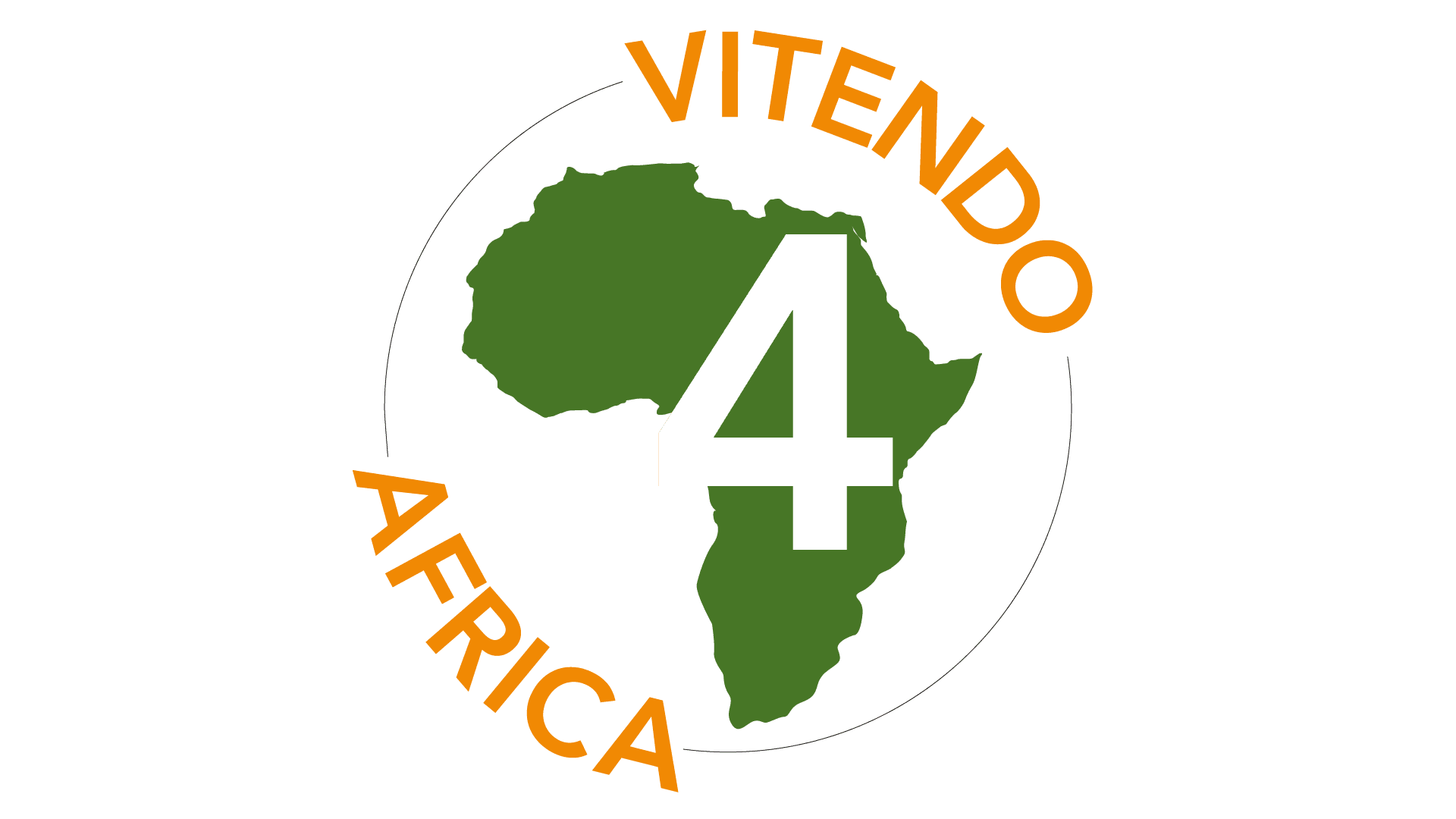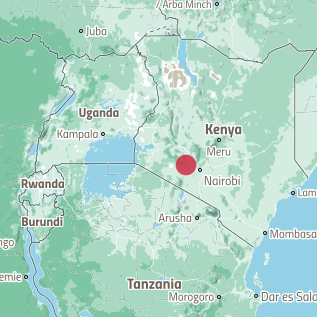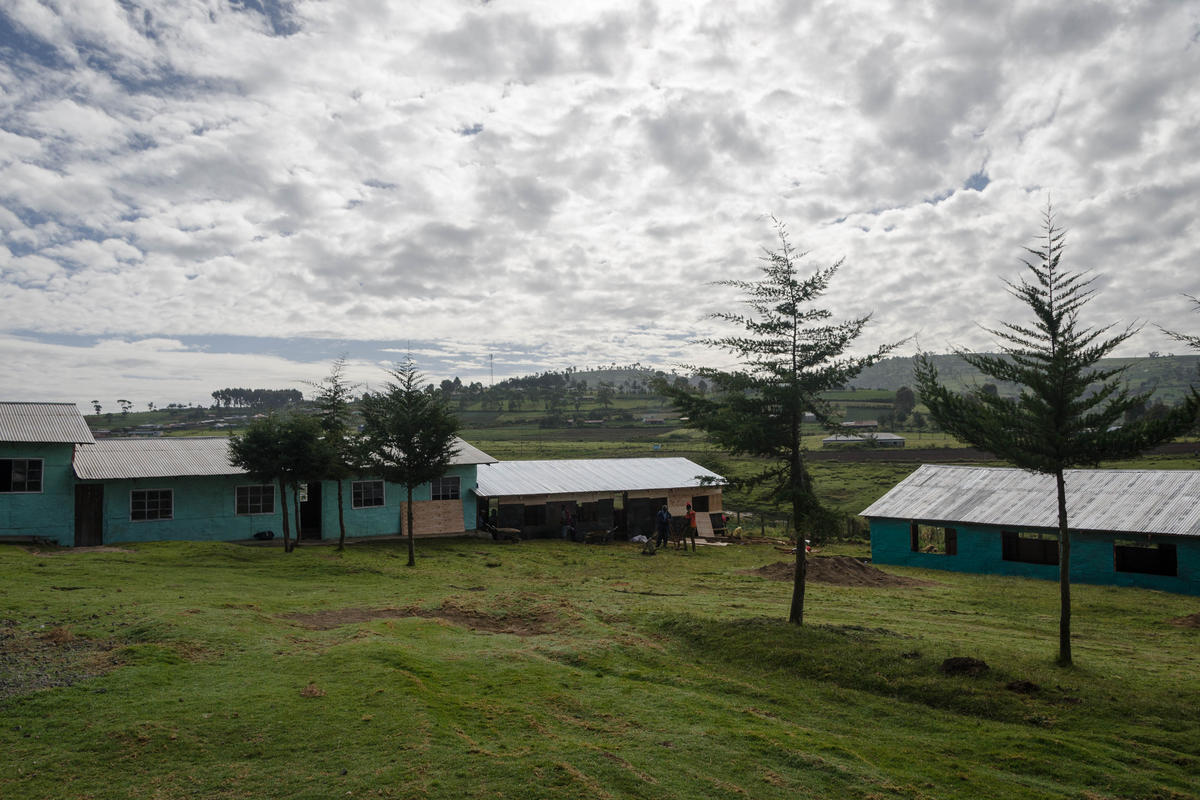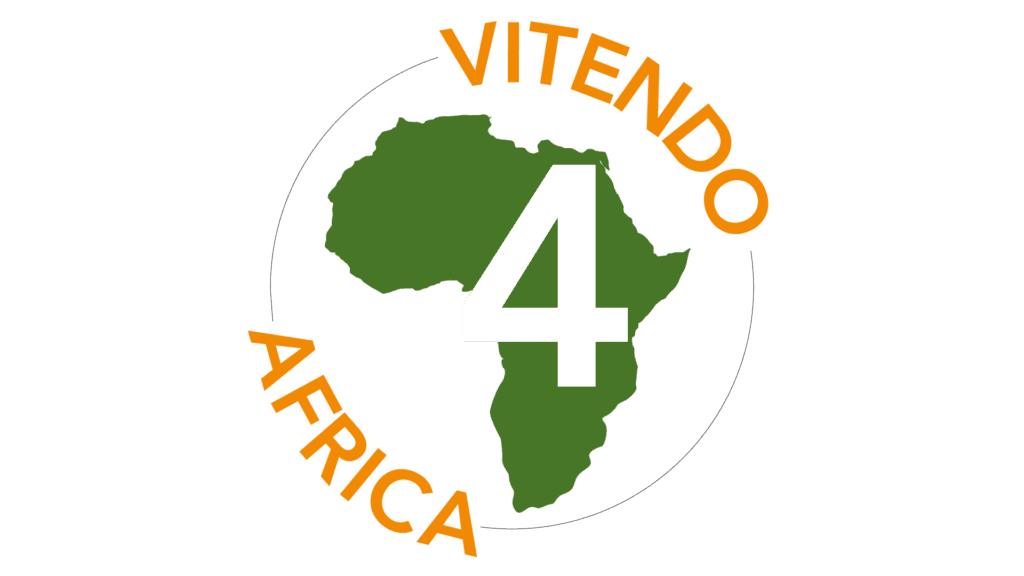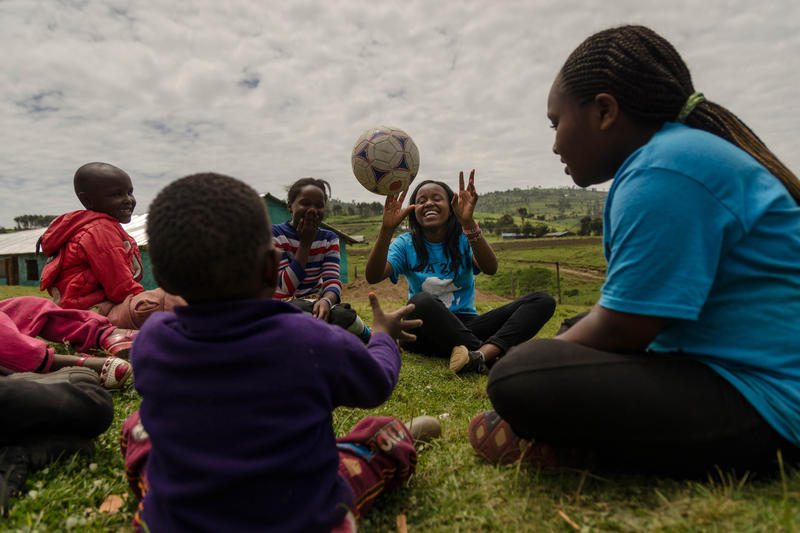
RYAN DELANEY | ST. LOUIS PUBLIC RADIO
It hit them that they were back home as soon as they were off they off the plane and in the crowded Jomo Kenyatta International Airport in Nairobi.
“And there was a long queue [at customs], a long, long queue. And I just knew I was in Kenya right there,” Victor Rotich said, days later and hours away from the capital, in the small village of Sakutiek.
Rotich was among a group of three seniors from Hazelwood West High School — and one who recently moved from St. Louis to Michigan — returning to their native Kenya. The two-week trip was a capstone to a mentorship program they’re a part of through a St. Louis-based organization, Vitendo4Africa, that supports African immigrants. The group spent more than a year planning, fundraising and collecting donations.
For three of them, including Rotich, it was their first time back.
While memories of home quickly returned, convincing locals of their Kenyan roots took more effort.
One morning while putting up the framing for new classrooms on a church school in a small farming village in the rolling hills of central Kenya, some curious young onlookers whispered among themselves about whether this group was really from Kenya.
“They have a pre-existing thought that we are all American,” said Rotich, who is 17. “We mostly speak English when we’re around each other, so maybe they just assume we’re from America and never grew up here.”
The group also was able to connect with residents through games. One afternoon, group member Sally Gacheru, 18, sat in a circle with a group of giggly, chatty children, tossing and bouncing a soccer ball back and forth. The kids, all with short-cropped hair, counted in English for each successful catch.
“Since we did that, the kids got more closer to us. They stopped shying off,” Gacheru said.
Reconnecting
Over the two weeks, the teens helped renovate a hospital near Kilgoris, in western Kenya, and added two classrooms onto this school in a part of central Kenya far from a paved road.
The trip was led by Geoffrey Soyiantet. When he moved to the U.S. at age 29, he found it hard to connect with other Kenyans living in St. Louis. After getting settled himself, Soyiantet founded the organization Vitendo4Africa, choosing a Swahili word meaning “action.”
He started bringing small groups of teens on service trips home last summer.
Soyiantet reminded the teens and his daughters about his childhood challenges each time they groaned about fetching water at the bottom of a steep hill. They longed for a hot shower.
“When I tell them about the life, what I used to do, the distance I used to walk, and what I used to do before I go to school,” he said. “To them, it looks like a theory.”
Soyiantet started Vitendo4Africa at first to cultivate resources for African immigrants arriving in Missouri. But he began to worry the younger immigrants were losing their Kenyan heritage in the throes of assimilation.
“Most of them, they were kind of shying away from being immigrants. And because of that, they lost some identity,” he said.
Rotich admitted he’s changed over the course of living in the United States.
“When I first came to the U.S., I didn’t want to be Kenyan mostly,” he said. “I wanted to adapt fast, become an American. But as I grew older, I learned to appreciate where I’m coming from.”
There was also time for the group to visit national parks, and the final days of the trip were blocked off to visit relatives. Elizabeth Kamau, an 18-year-old senior, traveled with gifts for her grandparents and cousins.
“My parents sent some gifts for them, like bags, clothes. And also a lot of things for the little children back there,” said Kamau, who moved to St. Louis two years ago.
On top of family gifts, Kamau and the group also came with heaps of school and medical supplies along with soccer balls to donate to the school.
But Soyiantet and their hosts in the village pushed them to think about what they’d take back with them on the trip.
The next day, Gacheru greeted a line of older women arriving to help lay the cement in the classroom, smiling and extending hands. It prompted Gacheru to say it’s the love and kindness of the Kenyan people she’s been reminded of.
“I’ll probably take back the heart of the people here,” she said.
The group completed two new classrooms enabling a small, church-run school to add seventh and eighth grade. Kenyan schools have become crowded since the government abolished school fees a decade ago.
August is school break in Kenya, but on the group’s last day in Sakutiek, dozens of children still came to the hilly schoolyard in their red-and-white uniforms to accept the supplies the group had brought and dedicated to the new classrooms.
“They help much. They did a lot,” said George Masese, the school carpenter, who then used Swahili to echo the same: “Kazi njema, kazi mzuri.”
Source: St. Louis Public Radio
